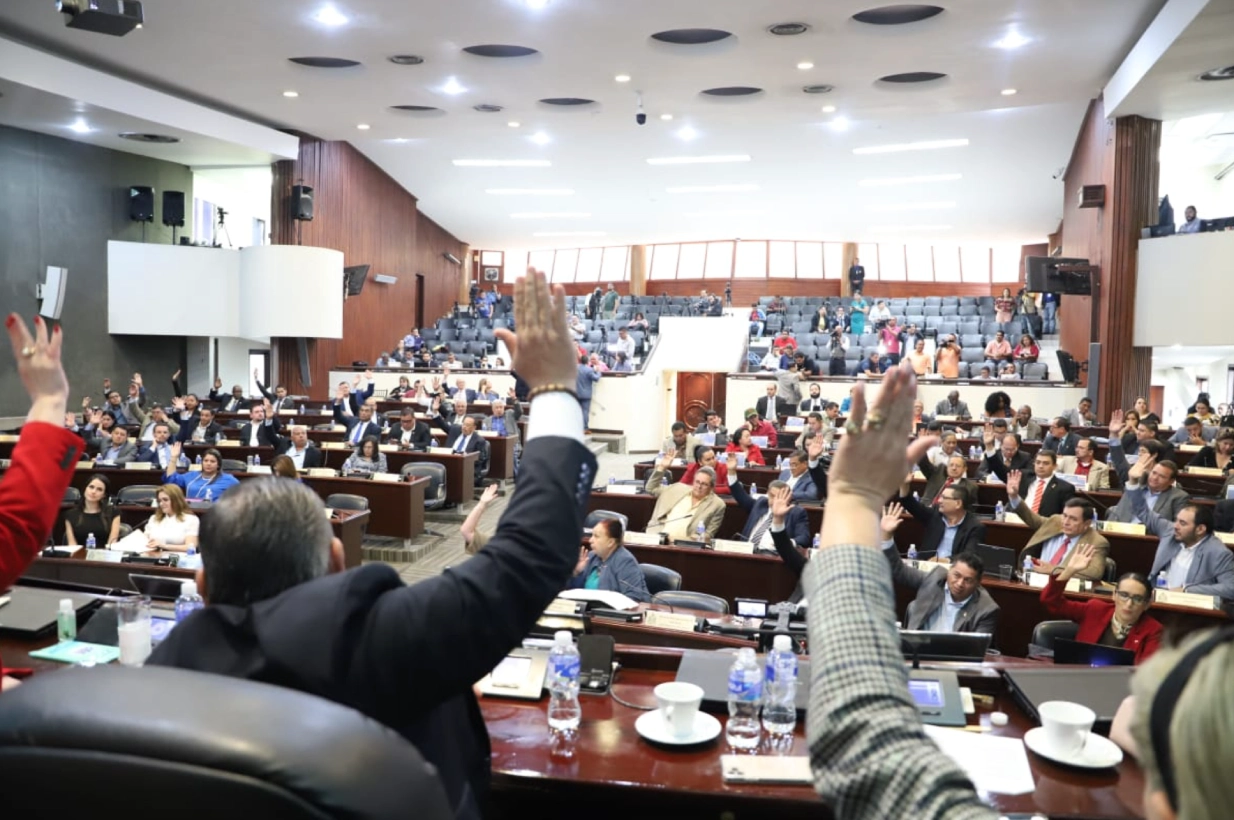Amid an enthusiastic crowd that filled the stands of the National Stadium of Tegucigalpa, with the surrounding streets full of supporters of the Libre Party and its allies, Xiomara Castro gave her first speech as President. She did so in the midst of a political crisis marked by the rebellion of a sector of her own party’s legislators in the National Congress, who are driven by the entourage of the now former president, Juan Orlando Hernández. Their goal is to delay the expected charges against him for corruption and his alleged relationship with drug trafficking.
The new President did not say anything unexpected, as everything had been previously announced in the plan for her first 100 days of government and in party documents as well. The President indicated that after 12 years of governments that disposed of public money without accountability, she had received a bankrupt state. She said “we must uproot the corruption of the 12 years of dictatorship, we have the right to re-establish ourselves on sovereign values, not on usury and extortion.”
The economic catastrophe that her government is receiving, she said, has no precedent in the history of Honduras. With a 700 % increase in foreign debt and an increase in poverty of 74 % of the population, Honduras has become “the poorest country in Latin America”. These conditions, according to Xiomara Castro, are causing the massive level of irregular emigration from the country.
For this reason, the President announced that more than one million families who consume less than 150 kilowatts per month will not have to pay their electricity bill. This consumption will be applied to the bills of high consumers, for which it will be necessary to make changes in the law and internal regulations of the National Electric Energy Company (ENEE).
Among other announcements, Castro noted the sending of a draft law to the National Congress to subsidize fuels and reduce their current prices. She also ordered the Central Bank and the Ministry of Finance to create the legal mechanisms to reduce bank interests for national production. In addition, the Secretary of Education must reestablish free tuition and ensure school snacks, the vaccination calendar, and the provision of masks to return to classroom classes.
Among the main efforts of her administration will be agricultural development to achieve food sovereignty, for which she will seek to renegotiate the clauses of the Central American Free Trade Agreement with the United States (CAFTA). She also indicated that the Armed Forces will work to protect the environment.
On mining, one of the most divisive issues in the country, she promised “no more permits for open mines or the exploitation of our minerals, no more concessions in the exploitation of our rivers, watersheds, national parks, and cloud forests.” Her administration will pay special attention to agro-forestry and industrial development, the promotion of tourism, and the establishment of a strict monetary fiscal policy.
The crowd erupted when the President called for the release of the Guapinol political prisoners and for the prosecution of the masterminds of the murder of Berta Cáceres, who was a Honduran environmental activist and indigenous leader that was assassinated in 2016. In these two cases, her administration will have to confront powerful interests that are accustomed to exerting their will with impunity. For this reason, she affirmed that previous, illegal constitutional reforms, “which violate popular sovereignty, such as the ZEDEs, (Employment and Economic Development Zones),” and are also promoted by the previous government and could, therefore, become a refuge for former officials persecuted by the justice system, must be dismantled immediately.
The new President also indicated that the government must enact a law condeming the 2009 Coup d’Etat “which destroyed the constitutional strand of the government, in addition to a law of condemnation that rebukes the decree that reelection is a crime of treason to the homeland, as well as an amnesty law for political prisoners.” She also referred to the elimination of laws aimed at destroying social protections and criminalizing protests. In this context, Castro indicated that the first popular consultation on constitutional reforms should be held this year.
The installation of a National and International Commission for the fight against corruption and impunity was nother relevant topic of her speech. It has the support of the United Nations, similar to the one that Guatemala had in the past.
A controversial Amnesty Law
A few days after her inaugural speech, it became clear that the President will face enormous challenges that stand in the way of the successful execution of these proposals. Congress quickly approved an amnesty law for political prisoners, exiles, and others persecuted for their activities against the illegalities of past nationalist governments. However, an insufficiently clear article could be included in the amnesty law for those who have committed acts of corruption. For this reason, different sectors of the civil society have already criticized what they consider an “impunity pact.”
As a result of the complaints, especially those of the second vice-presidential designate, Doris Gutiérrez, the defenders of the law immediately stated that cases of corruption or other similar crimes will not be included in the protections provided by this law. The Committee of Relatives of the Detained and Disappeared of Honduras (COFADEH) will be the entity in charge of evaluating the cases. This also led to complaints. This is because the work is assigned to a single body when there are many sectors in the country that have fought for human rights, but are not taken into account by this provision.
At the same time, and to the distress of the cachurecos, as nationalists are known in Honduras, especially those closest to the outgoing regime, the President of the US Senate Foreign Relations Committee, Robert Menendez, recently sent a letter to the US Secretary of State, Antony Blinken, and to the Secretary of the Treasury, Janet Yellen, asking the White House to cancel the visa of Juan Orlando Hernandez (JOH) and classify him as a “foreign narcotics trafficker”. A few days ago, the US annulled JOH’s visa and the State Department described him as “corrupt and a drug trafficker.” Congresswoman Norma Torres predicted a prompt extradition request for the former President.
These decisions will harden the actions of the former Honduran President’s entourage to avoid that a united Congress or a Supreme Court disloyal to the one who until now was his “lord and master” gives in to eventual pressures from the north and leaves JOH exposed to the US Justice.
Translated from Spanish by Alek Langford













